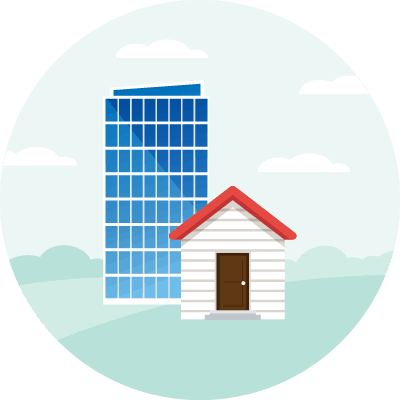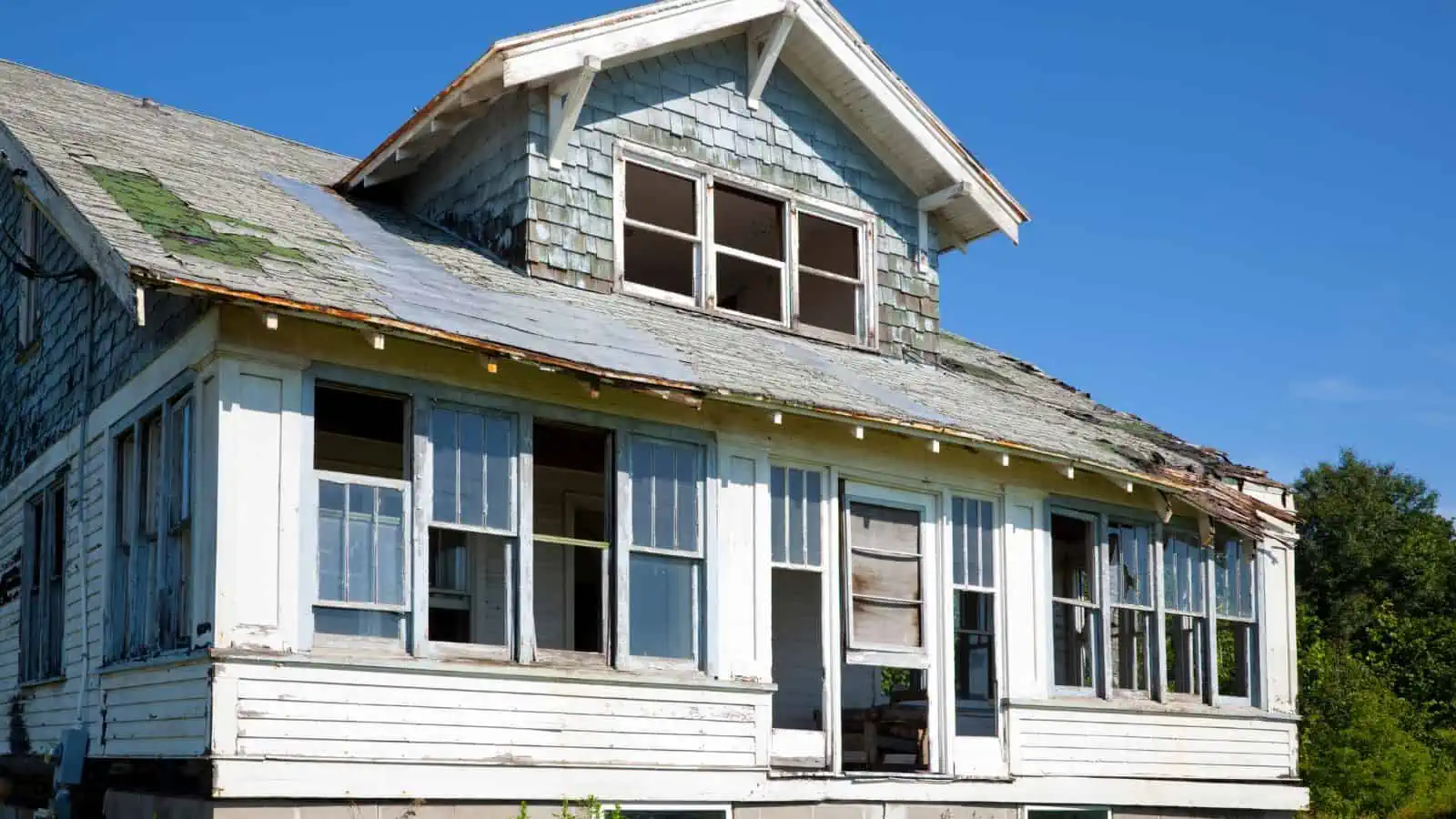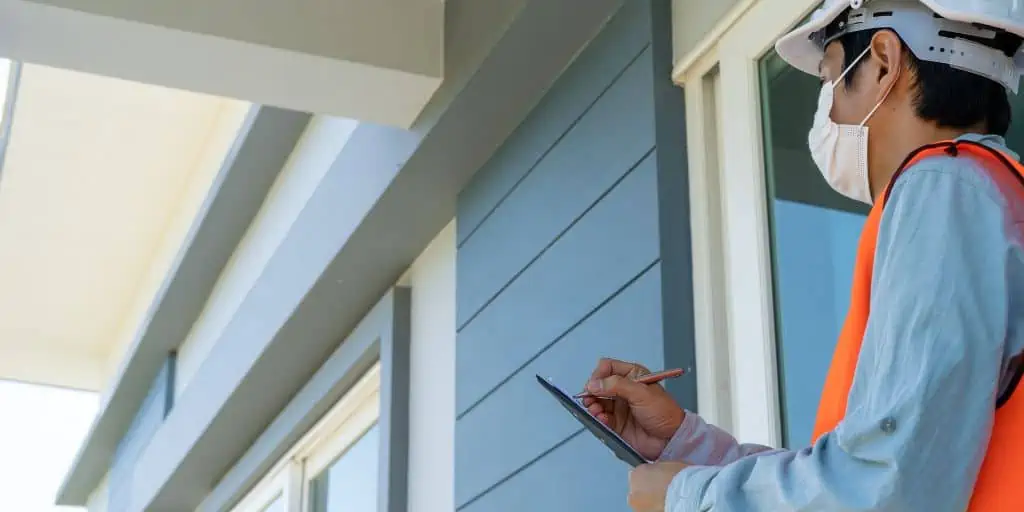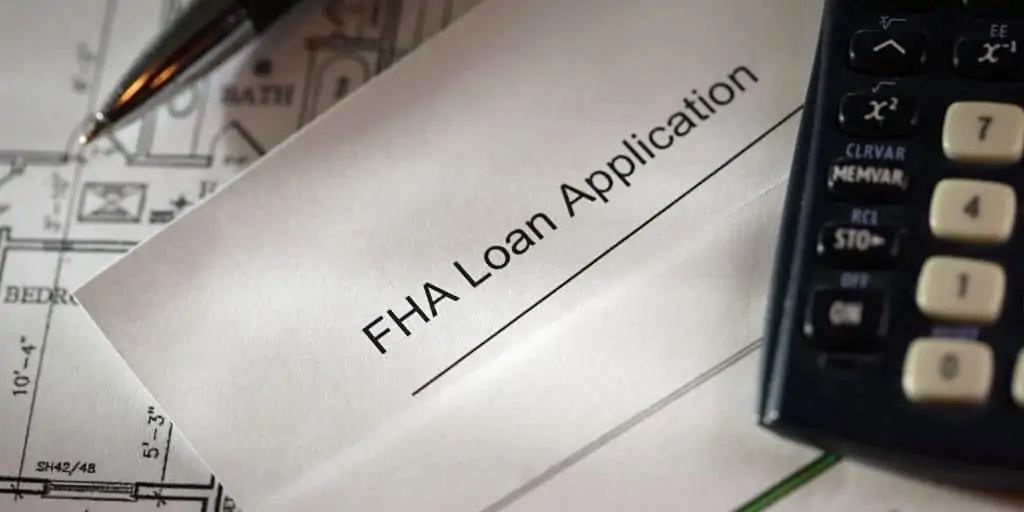What Is a Fixer-Upper?
Shortcuts
- A fixer-upper is real estate requiring considerable repairs or renovations to make it livable or appealing to buyers.
- Buying a fixer-upper is initially cheaper than a new house, but costs may escalate if the renovation needs are underestimated.
- Numerous home loan programs, both government-backed and conventional, are available for fixer-uppers.
Why Buy a Fixer-Upper?
Many buyers choose fixer-uppers because they’re less expensive and offer customization options in home design. They usually don’t draw a large crowd of buyers, leading to less competition.
Fixer-uppers also appeal to real estate investors, especially house flippers who fix-and-flip (i.e., those who buy, refurbish, and sell these properties for a profit).
However, if renovation costs exceed the budget, a fixer-upper can become pricey. Buyers planning to live in the property for an extended period can reduce their expenses by focusing on the essentials first[1] and making the fixer-upper comply with local building codes[2].
Conversely, house flippers need to ensure the property is market-ready as quickly as possible, which may not allow for such focus. The challenge is that home improvement projects don’t always stick to the planned timeline, and unforeseen issues can prolong the renovation period. Major miscalculations can also cut into the expected profit or even result in a loss.
Moreover, local housing market conditions can fluctuate rapidly. If demand for new homes decreases before the house flipper prepares the fixer-upper for occupancy, the selling price may fall short of their expectations when it enters the market.
Which Is Cheaper: Building a House or Buying a Fixer-Upper?
Generally, constructing a house from scratch is more expensive initially than buying a property that requires extensive repairs. This is especially the case when the empty lot for the new house is landlocked and lacks connections to public utilities or easement access.
However, the cost of restoring an old property to a like-new state may be pricier in the long run. In addition, estimating the amount needed to make the property functional and habitable can be challenging.
Often, the preliminary renovation estimate falls short of the final cost. Home inspection contractors may identify hidden problems, but the extent of the damage and their respective solution can only be determined once the project starts.
Home improvement experts disagree on how much the contingency fund should be. Some recommend reserving 10% of the total budget for unforeseen costs[3], while others suggest it should be 30%[4]. This significant range underscores how easy it is to underestimate the cost of renovating a rundown house.
How Much of a Fixer-Upper Is Too Much?
One method to gauge if a fixer-upper is overpriced is to estimate the property’s market value in good condition and then subtract the repair costs.
The difference can be its reasonable fair market value.
Besides repair costs, be mindful of bidding wars for a fixer-upper[5]. In such cases, the bidder often ends up paying more than the initial price. This can escalate the fixer-upper’s price to the point that it’s no longer a bargain.
Finally, looking at the fine print can help. For example, when the contract contains an “as-is” clause[6], it may suggest that the fixer-upper can be a considerable drain on your resources.
In other words, figuring out the fair market value of a fixer-upper isn’t as simple as comparing it to the asking prices of similar properties nearby.
Financing a Fixer-Upper
You can finance a fixer-upper with a mortgage. Several mortgage programs designed for fixer-uppers include FHA 203(k) loans, VA rehab loans, and conventional renovation loans.
Here’s a brief overview of each.
FHA Rehabilitation Loan
Unlike the typical FHA home loan[7], the FHA rehabilitation loan combines the mortgage amount with the cost of repairs. It has two versions: the limited 203(k) loan for properties needing minor fixes, and the standard 203(k) loan for homes requiring significant renovations.
The limited 203(k) loan can fund up to $35,000 in nonstructural repairs. The standard 203(k) loan applies to projects costing at least $5,000 and can cover major structural repairs. Even a borrower with a credit score as low as 500 may qualify for an FHA rehabilitation loan, depending on the down payment amount.
VA Rehabilitation Loan
The VA rehab loan rolls the renovation cost and the purchase price into one. This mortgage doesn’t require a down payment, allowing active or retired military members to borrow 100% of the home’s estimated value after renovation. Plus, it doesn’t need mortgage insurance[8].
This loan program can’t be used for rebuilds and teardowns. The funds should be used solely for repairs and upgrades that enhance the fixer-upper’s safety or livability.
Conventional Loans
This category includes two programs: Freddie Mac‘s CHOICERenovation Mortgage and Fannie Mae‘s HomeStyle Renovation Loan.
Both offer financing for a significant portion of the total of the mortgage amount and repair costs, although the exact amount may vary. The CHOICERenovation Mortgage offers a more straightforward option for borrowers with smaller rehab budgets.

Fannie Mae’s former headquarters at in Washington, D.C. Source: Wikipedia
Unlike the government-backed options[9], these conventional renovation loans grant borrowers the flexibility to use the funds on any improvements and hire any state-licensed contractor.
Note that lenders for both VA rehab loans and conventional renovation loans typically seek a credit score of approximately 620 or higher[10] for loan approval.
Sources
- Johnson, B. (2022, July 18.) 10 Luxury Home Improvements That Pay Off. LoveProperty.Life. Retrieved from https://loveproperty.life/ten-luxury-home-improvements-that-pay-off/
- Stone, B. (2001, September 22.) Bringing a House Up to Code Can Be Costly. The Washington Post. Retrieved from https://www.washingtonpost.com/archive/realestate/2001/09/22/bringing-a-house-up-to-code-can-be-costly/f38c654e-2cd6-4f69-b6c7-69717bc73f89/
- Tweddale, A. (2022, September 12.) Don’t Be One of Those Homeowners Who Go Over Budget on a Renovation. HouseLogic. Retrieved from https://www.houselogic.com/remodel/remodeling-tips-advice/home-renovations-on-a-budget/
- Ross, D. (2022, August 24.) How to Budget for Home Remodeling. HowStuffWorks. Retrieved from https://home.howstuffworks.com/home-improvement/remodeling/how-to-budget-for-home-remodeling.htm
- Williams, T. (2021, May 20.) As-Is Real Estate: What Buyers and Sellers Need to Know. Bob Vila. Retrieved from https://www.bobvila.com/articles/what-buyers-and-sellers-need-to-know-about-as-is/
- Bray, I. (2016, December 9) How Much Should You Pay for a Fixer-Upper Home? Nolo. Retrieved from https://www.nolo.com/legal-encyclopedia/how-much-should-you-pay-fixer-upper-home.html
- Getler, T. & Wood, K. (2021, December 8.) FHA Loan: What You Need to Know. NerdWallet. Retrieved from https://www.nerdwallet.com/article/mortgages/fha-loan
- What is mortgage insurance and how does it work? (2020, September 9.) Consumer Financial Protection Bureau. Retrieved from https://www.consumerfinance.gov/ask-cfpb/what-is-mortgage-insurance-and-how-does-it-work-en-1953/
- Luthi, B. (2020, October 11.) What Is a Government-Backed Mortgage? Experian. Retrieved from https://www.experian.com/blogs/ask-experian/what-is-a-government-backed-mortgage/
- Giovanetti, E. (2022, July 29.) How to Finance a Fixer-Upper Home. U.S. News. Retrieved from https://money.usnews.com/loans/mortgages/articles/buying-a-fixer-upper-home









